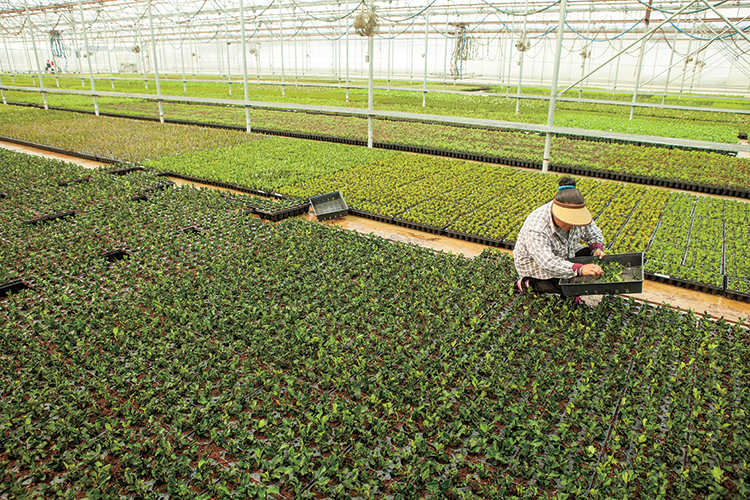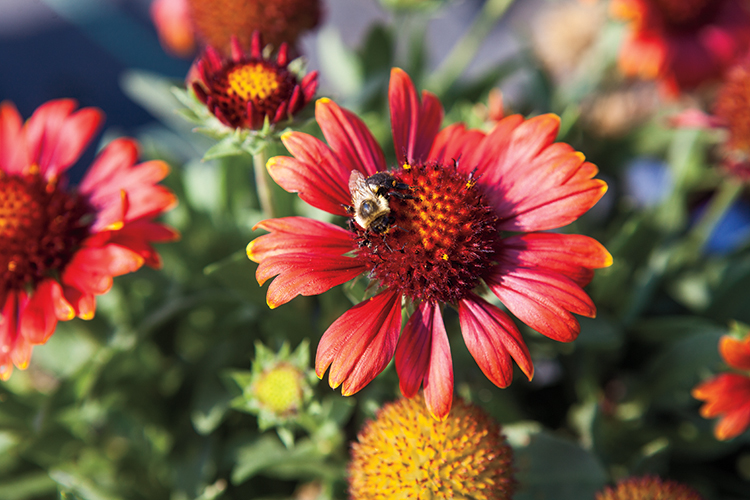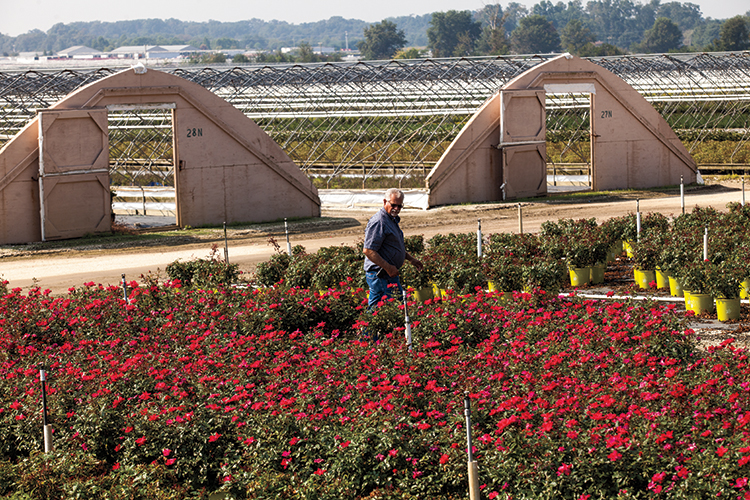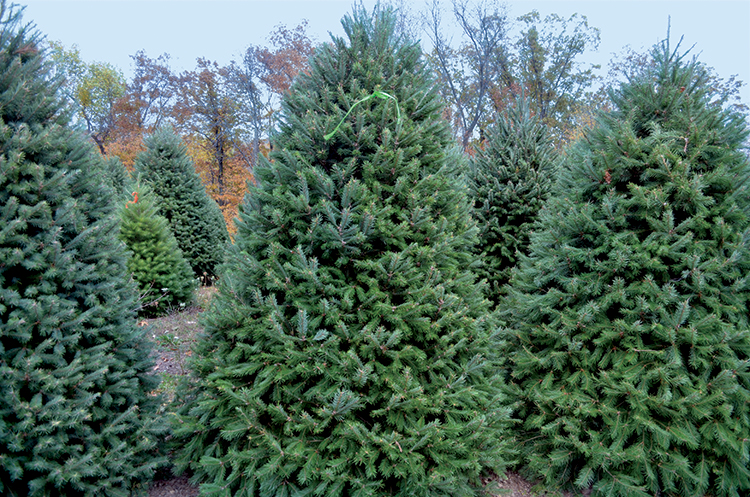Home > New Jersey > New Jersey Crops & Livestock > Growing a Horticulture Industry
Growing a Horticulture Industry

New Jersey’s nursery, greenhouse, flower, sod and Christmas tree farms – representing the “green industry” – produce hundreds of different plant varieties, enriching and complementing the diverse landscape of New Jersey and beyond.
“The green industry accounts for 40 to 45 percent of New Jersey’s annual farm production,” says Dominick Mondi, executive director of the New Jersey Nursery and Landscape Association.
A 2011 USDA-funded study estimates the output impact of the green industry at around $4 billion.
“We count some 60,000 people employed in New Jersey’s green industry,” Mondi says.
Those jobs are not unskilled, entry-level positions, says Ray Blew, chair of Centerton Nursery in Bridgeton.
“We have hundreds of computers used on our farm that help us automate and control things like irrigation, fertilizer rates and greenhouse temperature,” he says. “It takes skilled people to operate these machines, and those skilled jobs are the kind of jobs that agriculture will now create.”

From April to October, Centerton employs 80 full-time workers, supplying more than 1,000 kinds of plants to businesses in 35 states – independently managed garden centers, franchises, farm and roadside markets, landscape contractors and florists.
“New Jersey companies buy plants from us either retail them or use them in landscaping,” Blew says. “That means more money circulating back into the local economy.”
Changing trends in home landscaping have helped maintain or increase sales value for some firms, even amid recent housing market uncertainty, says Robert Swanekamp of Kube-Pak, an Allentown farm with 20 acres of greenhouses.
“We’ve seen a dramatic shift to selling plants into the landscape trade as more homeowners are having that work done,” he says.
This means growing higher-value plants in larger pot sizes; more mature plants provide the instant impact homeowners now crave.
Floriculture (greenhouse) sales in New Jersey grew about 3 percent in 2012 – the fourth consecutive year of positive sales growth – exceeding $170 million for the first time since 2008. Greenhouses have shifted their production focus away from bedding plants, selling more hanging baskets and patio pots as consumers clamor for instant impact and bigger colors. The state’s greenhouses sold 969,000 hanging baskets with geraniums, impatiens and petunias in 2012 – 100,000 more than in 2011.

The industry has met other challenges besides shifting consumer preferences.
“There’s been a disease problem in impatiens, but SunPatiens® have become popular,” says Swanekamp, who notes homeowners like the new variety that doesn’t wilt in full sun. “Some standard varieties like begonias and coleus are still in good demand.”
Mondi says demand for native plants and plants suited for wetland preservation and sustainable landscapes is also growing. Interest in other perennials, like hostas and hardy mums, is still strong.
Centerton Nursery develops and breeds its own daylily varieties, aiming to find colors and looks most interesting to homeowners. “It’s not easy predicting what kinds of new things people will like – we think we’re doing good if we can hit it 30 or 40 percent of the time, like a good baseball batter,” Blew says.
In addition to wholesalers, the green industry includes farms selling plants and trees direct to the public.
And recently, the New Jersey Department of Agriculture introduced a pilot program for products “Made With Jersey Grown” materials including birdhouses and feeders made with Jersey Grown wood, and black oil sunflower birdseed marketed by New Jersey Audubon and Jersey Firewood harvested from Jersey trees and kiln-dried to remove any potential pests and provide a better burn.

“New Jersey’s Christmas tree industry is alive and well, with more trees planted than ever,” says Chris Nicholson, president of the New Jersey Christmas Tree Growers Association. The state’s 6,000 acres of Christmas trees grow on about 1,150 farms; annual tree sales are valued around $2 million.
“A lot of the local merchants are just hugging me at the end of the season, because people have stopped to do other things in the community during their trip out to the farm to buy a tree,” Nicholson says.
New Jersey’s Christmas tree industry gained national prominence in 2013, when Wyckoff’s Christmas Tree Farm in Belvidere was grand champion at the National Christmas Tree Association’s Christmas tree contest. Since 1966, that national champion supplies the official White House Christmas tree, displayed in the Blue Room. “This is the first time the White House Christmas tree has come from New Jersey, and it’s a huge honor and milestone for New Jersey’s Christmas tree industry,” Nicholson says.



